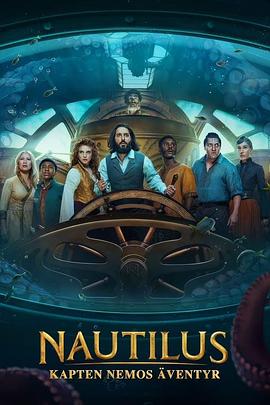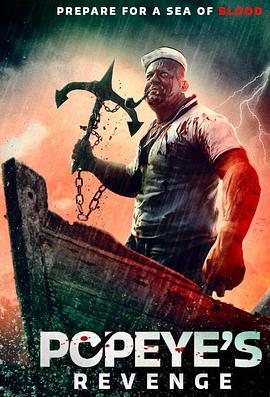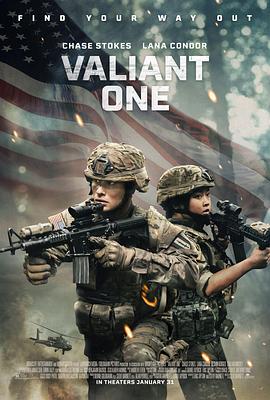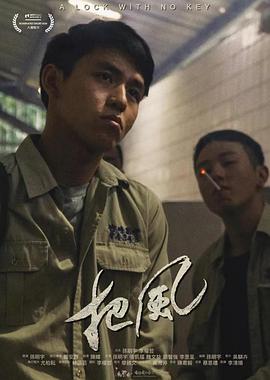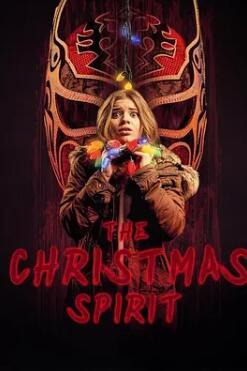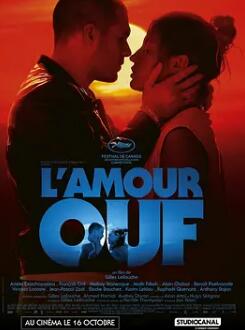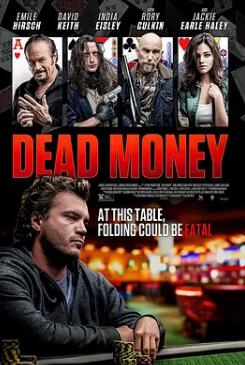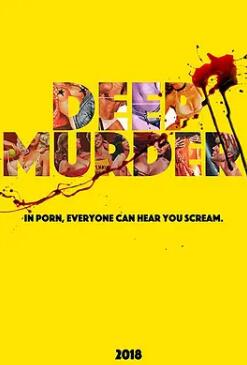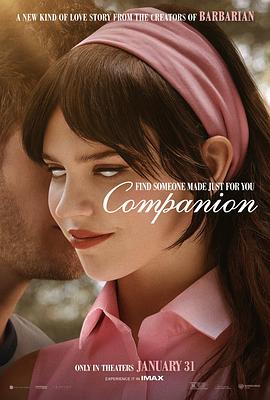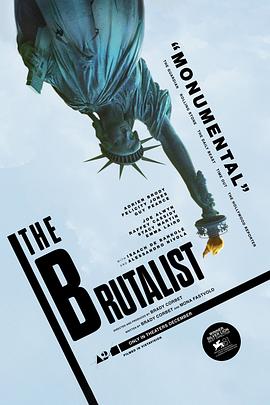剧情:
In 1961, Stanislaw Rozewicz created the novella film "Birth Certificate" in cooperation with his brother, Taduesz Rozewicz as screenwriter. Such brother tandems are rare in the history of film but aside from family ties, Stanislaw (born in 1924) and Taduesz (born in 1921) were mutually bound by their love for the cinema. They were born and grew up in Radomsk, a small town which had "its madmen and its saints" and most importanly, the "Kinema" cinema, as Stanislaw recalls: for him cinema is "heaven, the whole world, enchantment". Tadeusz says he considers cinema both a charming market stall and a mysterious temple. "All this savage land has always attracted and fascinated me," he says. "I am devoured by cinema and I devour cinema; I'm a cinema eater." But Taduesz Rozewicz, an eminent writer, admits this unique form of cooperation was a problem to him: "It is the presence of the other person not only in the process of writing, but at its very core, which is inserperable for me from absolute solitude." Some scenes the brothers wrote together; others were created by the writer himself, following discussions with the director. But from the perspective of time, it is "Birth Certificate", rather than "Echo" or "The Wicked Gate", that Taduesz describes as his most intimate film. This is understandable. The tradgey from September 1939 in Poland was for the Rozewicz brothers their personal "birth certificate". When working on the film, the director said "This time it is all about shaking off, getting rid of the psychological burden which the war was for all of us. ... Cooperation with my brother was in this case easier, as we share many war memories. We wanted to show to adult viewers a picture of war as seen by a child. ... In reality, it is the adults who created the real world of massacres. Children beheld the horrors coming back to life, exhumed from underneath the ground, overwhelming the earth." The principle of composition of "Birth Certificate" is not obvious. When watching a novella film, we tend to think in terms of traditional theatre. We expect that a miniature story will finish with a sharp point; the three film novellas in Rozewicz's work lack this feature. We do not know what will be happen to the boy making his alone through the forest towards the end of "On the Road". We do not know whether in "Letter from the Camp", the help offered by the small heroes to a Soviet prisoner will rescue him from the unknown fate of his compatriots. The fate of the Jewish girl from "Drop of Blood" is also unclear. Will she keep her new impersonation as "Marysia Malinowska"? Or will the Nazis make her into a representative of the "Nordic race"? Those questions were asked by the director for a reason. He preceived war as chaos and perdition, and not as linear history that could be reflected in a plot. Although "Birth Certificate" is saturated with moral content, it does not aim to be a morality play. But with the immense pressure of reality, no varient of fate should be excluded. This approached can be compared wth Krzysztof Kieslowski's "Blind Chance" 25 years later, which pictured dramatic choices of a different era. The film novella "On the Road" has a very sparing plot, but it drew special attention of the reviewers. The ominating overtone of the war films created by the Polish Film School at that time should be kept in mind. Mainly owing to Wajda, those films dealt with romantic heritage. They were permeated with pathos, bitterness, and irony. Rozewicz is an extraordinary artist. When narrating a story about a boy lost in a war zone, carrying some documents from the regiment office as if they were a treasure, the narrator in "On the Road" discovers rough prose where one should find poetry. And suddenly, the irrational touches this rather tame world. The boy, who until that moment resembled a Polish version of the Good Soldier Schweik, sets off, like Don Quixote, for his first and last battle. A critic described it as "an absurd gesture and someone else could surely use it to criticise the Polish style of dying. ... But the Rozewicz brothers do no accuse: they only compose an elegy for the picturesque peasant-soldier, probably the most important veteran of the Polish war of 1939-1945." "Birth Certificate" is not a lofty statement about national imponderabilia. The film reveals a plebeian perspective which Aleksander Jackieqicz once contrasted with those "lyrical lamentations" inherent in the Kordian tradition. However, a historical overview of Rozewicz's work shows that the distinctive style does not signify a fundamental difference in illustrating the Polish September. Just as the memorable scene from Wajda's "Lotna" was in fact an expression of desperation and distress, the same emotions permeate the final scene of "Birth Certificate". These are not ideological concepts, though once described as such and fervently debated, but rather psychological creations. In this specific case, observes Witold Zalewski, it is not about manifesting knightly pride, but about a gesture of a simple man who does not agree to be enslaved. The novella "Drop of Blood" is, with Aleksander Ford's "Border Street", one of the first narrations of the fate of the Polish Jews during the Nazi occupation. The story about a girl literally looking for her place on earth has a dramatic dimension. Especially in the age of today's journalistic disputes, often manipulative, lacking in empathy and imbued with bad will, Rozewicz's story from the past shocks with its authenticity. The small herione of the story is the only one who survives a German raid on her family home. Physical survial does not, however, mean a return to normality. Her frightened departure from the rubbish dump that was her hideout lead her to a ruined apartment. Her walk around it is painful because still fresh signs of life are mixed with evidence of annihilation. Help is needed, but Mirka does not know anyone in the outside world. Her subsequent attempts express the state of the fugitive's spirits - from hope and faith, moving to doubt, a sense of oppression, and thickening fear, and finally to despair. At the same time, the Jewish girl's search for refuge resembles the state of Polish society. The appearance of Mirka results in confusion, and later, trouble. This was already signalled by Rozewicz in an exceptional scene from "Letter from the Camp" in which the boy's neighbour, seeing a fugitive Russian soldier, retreats immediately, admitting that "Now, people worry only about themselves." Such embarassing excuses mask fear. During the occupation, no one feels safe. Neither social status not the aegis of a charity organisation protects against repression. We see the potential guardians of Mirka passing her back and forth among themselves. These are friendly hands but they cannot offer strong support. The story takes place on that thin line between solidarity and heroism. Solidarity arises spontaneously, but only some are capable of heroism. Help for the girl does not always result from compassion; sometimes it is based on past relations and personal ties (a neighbour of the doctor takes in the fugitive for a few days because of past friendship). Rozewicz portrays all of this in a subtle way; even the smallest gesture has significance. Take, for example, the conversation with a stranger on the train: short, as if jotted down on the margin, but so full of tension. And earlier, a peculiar examination of Polishness: the "Holy Father" prayer forced on Mirka by the village boys to check that she is not a Jew. Would not rising to the challenge mean a death sentance? Viewed after many years, "Birth Certificate" discloses yet another quality that is not present in the works of the Polish School, but is prominent in later B-class war films. This is the picture of everyday life during the war and occupation outlined in the three novellas. It harmonises with the logic of speaking about "life after life". Small heroes of Rozewicz suddenly enter the reality of war, with no experience or scale with which to compare it. For them, the present is a natural extension of and at the same time a complete negation of the past. Consider the sleey small-town marketplace, through which armoured columns will shortly pass. Or meet the German motorcyclists, who look like aliens from outer space - a picture taken from an autopsy because this is how Stanislaw and Taduesz perceived the first Germans they ever met. Note the blurred silhouettes of people against a white wall who are being shot - at first they are shocking, but soon they will probably become a part of the grim landscape. In the city centre stands a prisoner camp on a sodden bog ("People perish likes flies; the bodies are transported during the night"); in the street the childern are running after a coal wagon to collect some precious pieces of fuel. There's a bustle around some food (a boy reproaches his younger brother's actions by singing: "The warrant officer's son is begging in front of the church? I'm going to tell mother!"); and the kitchen, which one evening becomes the proscenium of a real drama. And there are the symbols: a bar of chocolate forced upon a boy by a Wehrmacht soldier ("On the Road"); a pair of shoes belonging to Zbyszek's father which the boy spontaneously gives to a Russian fugitive; a priceless slice of bread, ground under the heel of a policeman in the guter ("Letters from the Camp"). As the director put it: "In every film, I communicate my own vision of the world and of the people. Only then the style follows, the defined way of experiencing things." In Birth Certificate, he adds, his approach was driven by the subject: "I attempted to create not only the texture of the document but also to add some poetic element. I know it is risky but as for the merger of documentation and poety, often hidden very deep, if only it manages to make its way onto the screen, it results in what can referred to as 'art'." After 1945, there were numerous films created in Europe that dealt with war and children, including "Somewhere in Europe" ("Valahol Europaban", 1947 by Geza Radvanyi), "Shoeshine" ("Sciescia", 1946 by Vittorio de Sica), and "Childhood of Ivan" ("Iwanowo dietstwo" by Andriej Tarkowski). Yet there were fewer than one would expect. Pursuing a subject so imbued with sentimentalism requires stylistic disipline and a special ability to manage child actors. The author of "Birth Certificate" mastered both - and it was not by chance. Stanislaw Rozewicz was always the beneficent spirit of the film milieu; he could unite people around a common goal. He emanated peace and sensitivity, which flowed to his co-workers and pupils. A film, being a group work, necessitates some form of empathy - tuning in with others. In a biographical documentary about Stanislaw Rozewicz entitled "Walking, Meeting" (1999 by Antoni Krauze), there is a beautiful scene when the director, after a few decades, meets Beata Barszczewska, who plays Mireczka in the novella "Drops of Blood". The woman falls into the arms of the elderly man. They are both moved. He wonders how many years have passed. She answers: "A few years. Not too many." And Rozewicz, with his characteristic smile says: "It is true. We spent this entire time together."收起
相关影片
2021电影日本
更新至【7】
2023电影英国
A horror reimagining of the famous tale.. Mary Had A Little Lamb..
HD中字
2024电影欧美
沙扎德·拉蒂夫 乔治亚·福纳德 塞利娜·芒维尔 卢克·阿诺德 雅各布·柯林斯-莱维 Kayden Price 本尼迪克·哈迪 阿洛·格林 Tyrone Ngatai 唐玲雪 帕卡罗·姆泽贝 Ashan Kumar 达米安·加维 卡梅隆·卡夫 Andrew Shaw 蒂埃里·弗雷蒙 苏格拉底·奥图 钱姆·艾希勒珀拉 达伦·吉尔希南 Samara Wheeler
讲述尼莫船长和他充满传奇性的潜水艇“鹦鹉螺号”的起源故事。尼莫(沙扎德·拉蒂夫 饰),一个印度王子,他被剥夺了权利和家庭,成为东印度公司的囚徒,想要向夺走了自己的一切的势力复仇。此后他开始航海之旅,一边抵抗敌人,一边发现那些有魔力的水下世界。
更新至第07集
2025电影欧美
Emily Mogilner Connor Powles Danielle Ronald Max Arlott Bruno Cryan Kathi DeCouto Kyle Jordan 奥利弗·梅森 史蒂芬·莫瑞 Fyn Phoenixx 凯莉·里安·桑松 Danielle Scott Karolina Ugrenyuk Amanda Jane York
“一部下流、血腥的杀人狂电影”。该片由“毁童年恐怖电影”专业户ITN出品,但故事不是设定在他们的恐怖片宇宙(Poohverse)中。
第1集
2025电影欧美
蔡斯·斯托克斯 拉娜·康多 戴斯敏·博格斯 Daniel Chae Jun 乔纳森·怀特赛尔 卡兰·马尔韦 Diana Tsoy 罗纳德·帕特里克·汤普森 斯蒂芬·阿德科鲁 Jerina Son 李利强 Dimitri Tsoy Tyrone Pak
随着朝鲜和韩国之间的紧张局势,一架美国直升机在朝鲜一侧坠毁,现在幸存者必须共同努力保护一名民用技术专家,并在没有美国军事支持的情况下找到出路。
第1集
2024电影大陆
第1集
2021电影台湾
HD
2025电影大陆
HD国语
2023电影美国
A lone man with the Christmas Spirit trapped in his head must kidnap a teenage girl in order to sa
HD中字
2024电影法国
阿黛尔·艾克萨勒霍布洛斯 弗朗索瓦·西维尔 拉斐尔·奎纳德 埃洛迪·布歇 阿兰·夏巴 伯努瓦·波尔沃德 尼可拉斯·旺克奇基 文森特·拉科斯特 安东尼·巴容 让-帕斯卡尔·扎迪 马洛丽·万涅克 马利克·弗里卡 Bastien Trouvé Emmanuel Dehaene Manon Jacquart Sonia Bekam Jack Claudany Elias Hilali Pierre Lamoureux Okito Wembonyama
在20世纪80年代的法国东北部,两个青少年,克洛泰尔 (Clotaire, 弗朗索瓦·西维尔 François Civil 饰) 和雅姬 (Jackie, 阿黛尔·艾克萨勒霍布洛斯 Adèle E
HD中字
2024电影美国
HD中字
2019电影美国
奎因·贝齐克 凯蒂·阿赛尔顿 杰西卡·帕克·肯尼迪 克里斯·里德 约什·马戈林 斯蒂芬妮·德雷克 杰瑞·奥康奈尔 克里斯托弗·麦克唐纳 小伊萨克·C.辛格尔顿 Neel Nanda 尼基·本茨 Mickey Gooch Jr.
Softcore porn stars and filmmakers are forced to try and figure out how to survive as they start g
HD中字
2025电影美国
HD
2024电影美国
HD中字
2024电影美国
HD中字
2024电影欧美
本·卫肖 奥利维娅·科尔曼 艾米莉·莫迪默 安东尼奥·班德拉斯 休·博纳维尔 艾美达·斯丹顿 吉姆·布劳德本特 朱丽·沃特斯 阿米特·沙阿 马德琳·哈里斯 萨缪尔·乔斯林 卡拉·桃丝 阿什莉·雷诺兹 Sayera Haque Chi Aloysius Kat Collings Carla Jones
帕丁顿(本·卫肖 Ben Whishaw 配音)回到家乡秘鲁看望他心爱的露西婶婶。露西婶婶现住在退休熊之家。然而一个谜团将帕丁顿和布朗一家带入意想不到的惊险旅程。从亚马逊雨林到秘鲁山巅,一场激动人心的冒险随之而来。
HD中字



